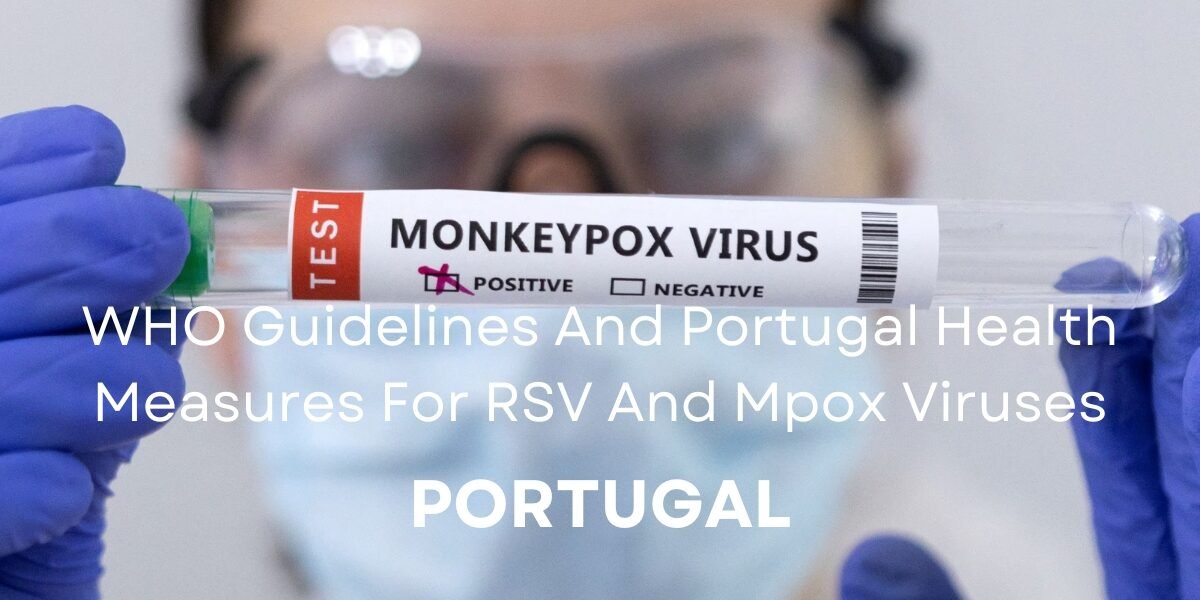Portugal has made important health measures to get ready for two major health threats which are respiratory syncytial virus (RSV) and mpox. These viruses have become an increasing worldwide threat. Portugal’s National Institute of Health, Doutor Ricardo Jorge (INSA), has been working hard to prepare for these viruses. Fernando de Almeida, the president of INSA, has stated that Portugal has enough resources and specialization to deal with both viruses.
Read More About: Green Mobility Package Portugal: Government Approves 13 Measures for Greater Mobility
WHO Guidelines For RSV And Mpox

Portugal strictly follows the instructions of the World Health Organization (WHO). The WHO supports countries in preparing for outbreaks of viruses such as RSV and mpox. Recently, WHO doctors recommended that pregnant women be vaccinated to protect newborns from RSV.
Almeida said:
We are, obviously, prepared from a technical and laboratory point of view
Portugal is yet to announce whether it is going to completely follow instructions from the WHO. Fernando de Almeida said that the country always follows WHO rules.
He said:
We are the reference laboratory for the entire area of epidemiology, especially associated with the laboratory and diagnostic aspects, so we are always in contact with the WHO and in line with all its guidelines
He explained that INSA is an important lab for studying diseases in Portugal. This includes diagnosing and understanding how viruses spread. Almeida did not confirm if Portugal will vaccinate pregnant women against RSV. He emphasized that the country stays updated on health strategies.
RSV Risk And Health Measures
The RSV virus mostly affects elderly people, babies, and small children. It can cause serious lung problems like pneumonia and bronchiolitis which are mostly in newborns.
Most of these deaths occur in countries with low to middle incomes because their healthcare systems are unable to handle severe RSV infections.
WHO recently recommended that countries should vaccinate pregnant women during their third trimester to help protect their babies from RSV.
Reports show that a single dose of the vaccine between 24 and 36 weeks of pregnancy can prevent serious RSV infections in newborns. Vaccinating mothers can be a good strategy for countries to reduce the number of severe RSV cases.
Portugal has not yet said if it will start vaccinating pregnant women against RSV. The country can prevent a significant number of dangerous cases and reduce the burden on hospitals during the RSV season, which typically occurs in the winter if it follows the WHO’s recommendations.
Portugal’s Role In Mpox Research

While RSV is a focus, Portugal is also leading the fight against another virus: mpox. It spreads from animals to humans and between people when they come into close contact. This virus is also called monkeypox It can cause fever, pains in the body, and skin lesions, some of which can increase to severe levels.
INSA made a breakthrough by becoming the first lab in the world to fully map the mpox genome. This helped scientists understand more about how the virus spreads and mutates.
Fernando de Almeida said:
These guidelines apply not only to the Ricardo Jorge Institute, in the laboratory area but also to the Directorate-General for Health, which is monitoring the RSV virus
He highlighted that INSA is working closely with the Directorate General for Health (DGS) which is in charge of managing public health responses. DGS is keeping a close eye on both RSV and mpox.
The virus mpox is not as common as other infections but was considered a global public health emergency. Mpox can cause serious sickness, particularly in individuals with low immune systems.
Fernando de Almeida emphasized that technical and laboratory preparation is very important to handle such kind of viruses. He believes Portugal will be able control any future RSV, mpox, or other viral pandemics with current precautions in place.
